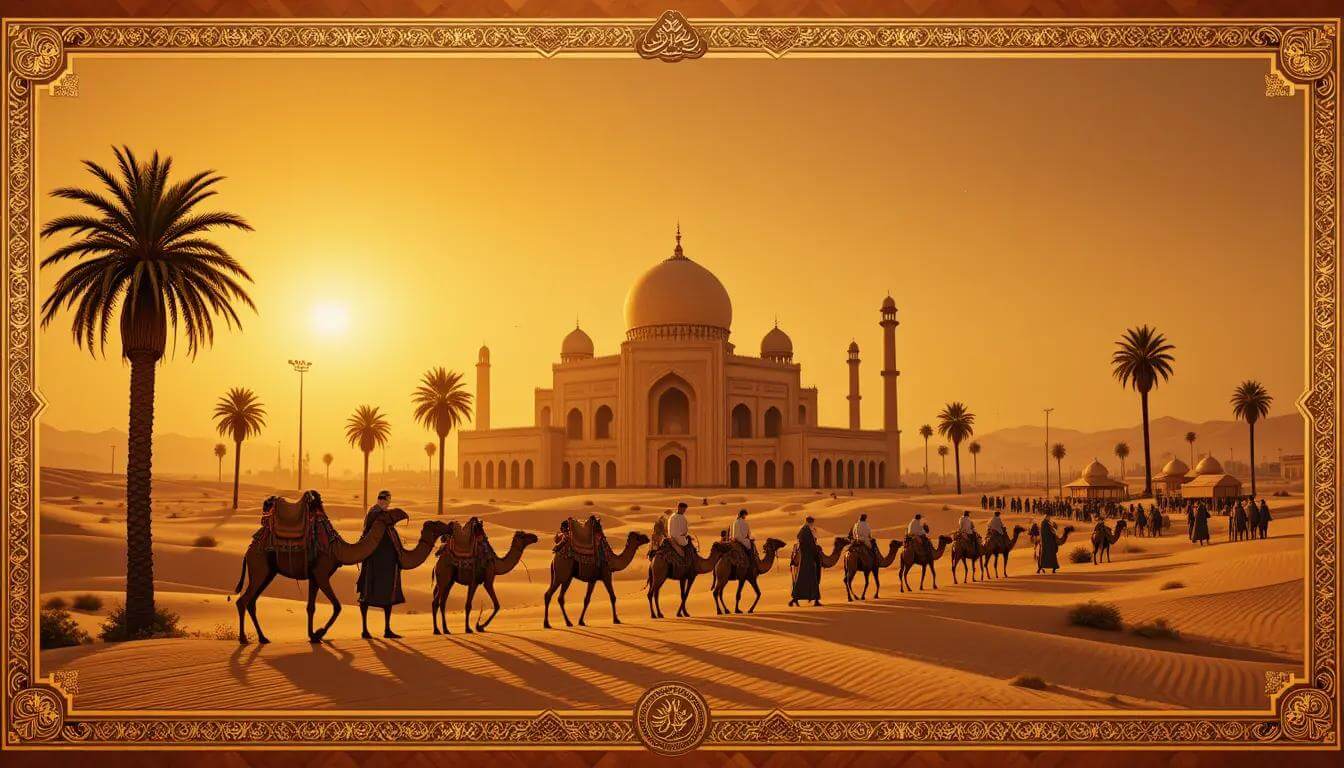The History and Legacy of the Arabs
Who Are the Arabs?
The Arabs are a group of people primarily living in the Arabian Peninsula, the Middle East, and North Africa. They share the Arabic language, one of the most widely spoken languages in the world. Arab identity is not just about language but also culture, heritage, and shared history. The Arab identity spans thousands of years and has greatly influenced the world's political, cultural, and religious landscapes.
Historically, the Arabs were divided into two major groups: the nomadic Bedouins of the north and the more sedentary peoples of the south, including the Sabæans and Himyarites. These groups had different cultural practices, but both shared a common heritage that would later unify under the banner of Islam.
Arabic culture and civilization have made significant contributions to the world, particularly in the fields of science, philosophy, medicine, and literature. The Islamic Golden Age saw Arab scholars making groundbreaking discoveries and preserving ancient knowledge that influenced Western Renaissance thinkers.
Historical Roots and Geographical Divisions
The Arabs trace their ancestry to two main tribes: the Qahtani Arabs, believed to be descendants of Yoqtan, and the Adnani Arabs, believed to be descendants of Ismail, the son of the Prophet Ibrahim (Abraham). These two branches formed the backbone of Arab identity, and the tribes of the Arabian Peninsula played a key role in the early history of Islam.
The Arabian Peninsula itself was divided into various regions, each with its own distinct culture and history. The northern regions were primarily home to Bedouin tribes that lived in the desert, while the southern regions, such as Yemen, were home to more settled civilizations that built great cities and trading networks. These geographical divisions created different lifestyles, social structures, and languages within the Arab world.
With the rise of Islam in the 7th century, the Arab world became a powerful force that stretched from the Iberian Peninsula to the borders of India, connecting various cultures and facilitating the exchange of knowledge, ideas, and goods.

Genealogy and Language of the Arabs
Arabic, the language of the Quran, plays a crucial role in Arab identity. It is not just a means of communication but a powerful symbol of cultural and religious unity. The Arabic language belongs to the Semitic family of languages, which also includes Hebrew, Aramaic, and Amharic.
Arab genealogy, particularly the lineage of the Prophet Muhammad, has always been a central aspect of Arab culture. Tribes traced their ancestors back to the early days of Arab history, and this heritage was preserved through oral traditions. Arab tribes were known for their ability to memorize long genealogies and pass them down from generation to generation.
The Arabic language and genealogy have not only played a pivotal role in unifying the Arab world but have also connected Arabs to their ancient past. The study of genealogy and the preservation of family histories remain important aspects of Arab culture today.
Legacy and Cultural Impact
The Arab world has made countless contributions to global civilization. During the Islamic Golden Age, Arab scholars preserved and expanded upon the knowledge of ancient civilizations such as the Greeks, Romans, and Persians. They made pioneering contributions in fields like mathematics, astronomy, medicine, philosophy, and architecture.
- Mathematics: The introduction of algebra and the concept of zero, which transformed mathematics.
- Medicine: Pioneering works in surgery, pharmacology, and hygiene.
- Astronomy: Advancements in star mapping and the creation of astronomical instruments.
- Philosophy: The translation of Greek philosophical works and the development of new philosophical ideas.
Arab culture also has a rich tradition in literature, particularly in poetry. Arabic poetry, known for its rhythmic beauty and deep meanings, has been a key part of the Arab heritage for centuries. Arabic calligraphy, with its elegant and intricate designs, is another unique and valued art form in the Arab world.
Today, the Arab world continues to play an influential role in global politics, economics, and culture. From its rich history to its vibrant modern culture, the Arab world is a key player in shaping the future of humanity.
